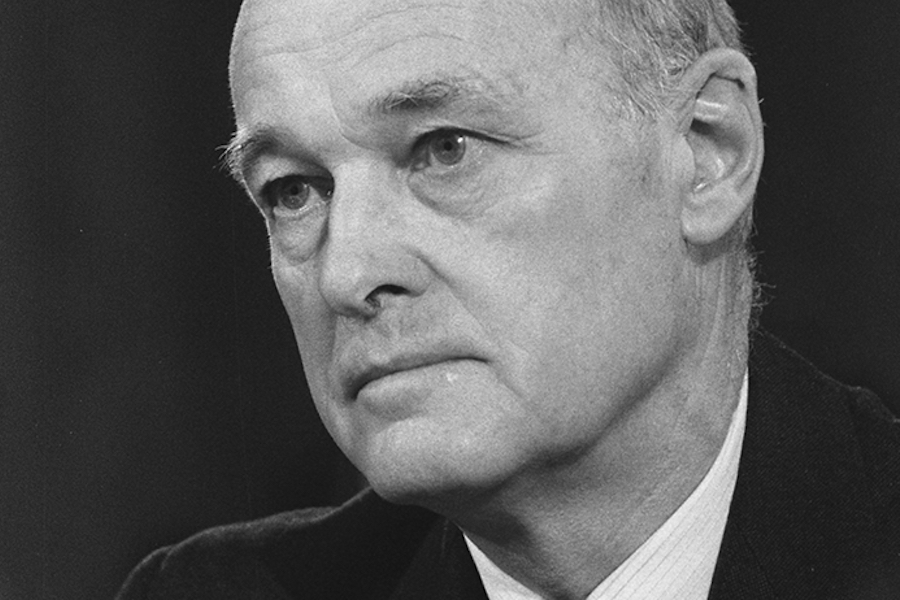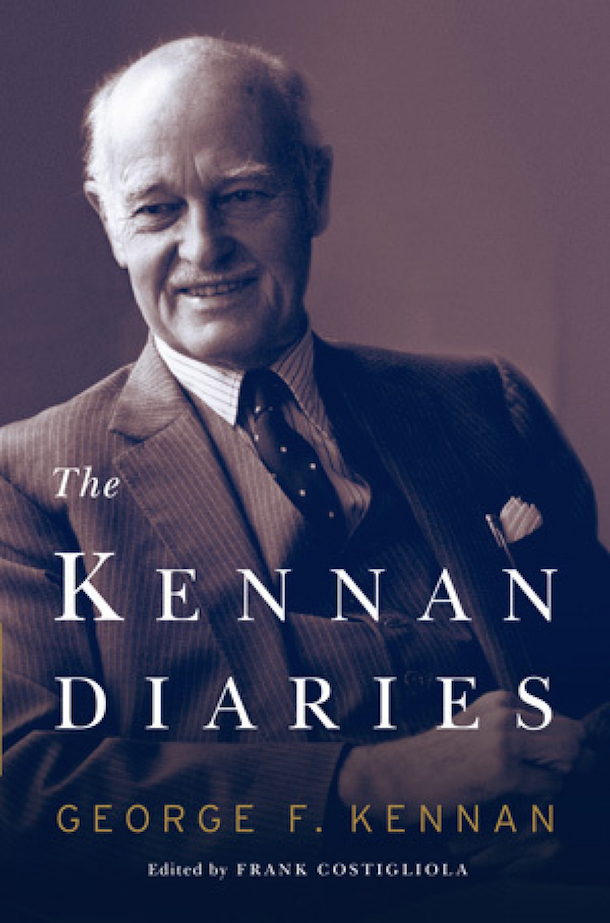
Books
George F. Kennan and the Desire to Remake the World in the West’s Image
George F. Kennan was a lot of things to a lot of people. To some, he was a consummate diplomat, flying the flag for the Balance of Power in the age of the Balance of Terror. To others, he was a great scholar, his unique insights into the peculiar character of foreign cultures matched only by his outsider’s appreciation of the United States’ own idiosyncrasies. Still more viewed him as the author of the West’s Cold War strategy and the architect of the Warsaw Pact’s demise. And then there are those who thought he was a reactionary, a peddler of snake oil, an amoral apologist for dictators, and so on.
All of these positions are true in one way or another, though it should go without saying that some are truer than others. If one thing is for certain, it’s that you can’t spend eighty odd years in the public eye without leaving behind a long list of disciples and detractors, not to mention a library’s worth of historiographical controversies. After five or so years of obsessing over Kennan’s life and ideas, the best I can say about him is that—like so many others—he was a flawed genius. That’s not very profound or erudite, of course, but it’s probably closer to the truth than any paid-up member of the academic establishment would care to admit.
This dichotomy comes across clearly in The Kennan Diaries, a 768-page volume compiled and edited by the eminent American historian Frank Costigliola. From his childhood in pre-Lusitania Milwaukee to his final days in post-9/11 Princeton, Kennan wrestled incessantly with the often uncomfortable and unpleasant consequences of his own intellectual endeavor, sometimes successfully and sometimes not. Perhaps it was this internal battle, always simmering under the surface that fueled Kennan’s boundless curiosity and turned educated intuition into judicious counsel.
Whatever the case, a cursory glance at these diaries should be enough to persuade even the most ardent Kennan-bashers that the man had an eye for the big picture, especially when it came to foreign affairs. I could quote five or six passages to convince you of this fact; however, I’m inclined to wager that recounting just one entry will suffice.

In the summer of 1944, W. Averell Harriman, the U.S. ambassador to the Soviet Union, appointed Kennan the deputy chief of the Moscow mission. Owing to the situation in Europe, it took him a month to get to Russia, flying on whatever clapped-out air transport the Allied war machine could spare. On June 23rd, he landed in Baghdad for a two-day layover. After making a few observations about the weather and the locals, this is what he wrote:
“[The Iraqis have] now come just enough into contact with Western life so that its upper class has a thirst for many things which can be obtained only in the West. Suspicious and resentful of the British, they would be glad to obtain these things from us. They would be glad to use us as a foil for the British, as an escape from the restraints which the British place upon them.
If we give them these things, we can perhaps enjoy momentary favor on the part of those interested in receiving them. But to the extent that we give them, we weaken British influence, and we acquire, whether we wish it or not, responsibility for the actions of the Iraqis. If they then begin to do things that are not in our interests, which affect the world situation in ways unfavorable to our security, and if the British are unable to restrain them, we then have ourselves at least in part to blame, and it is up to us to take the appropriate measures.
Are we willing to bear this responsibility? I know, and every realistic American knows, that we are not. Our Government is technically incapable of conceiving and promulgating a long-term consistent policy toward areas remote from its own territory. Our actions in the field of foreign affairs are the convulsive reactions of politicians to an internal political life dominated by vocal minorities.
Those few Americans who remember something of the pioneer life of their own country will find it hard to view the deserts of Iraq without a pang of interest and excitement at the possibilities for reclamation and economic development. If trees once grew here, could they not grow again? If rains once fell, could they not again be attracted from the inexhaustible resources of nature? Could not climate be altered, disease eradicated?
If they are seeking an escape from reality, such Americans may even pursue these dreams and enter upon the long and stony road which could lead to their fruition. But if they are willing to recall the sad state of soil conservation in their own country, the vast amount of social improvement to be accomplished at home, and the inevitable limitations on the efficacy of our type of democracy in the field of foreign affairs—then they will restrain their excitement at the silent, expectant possibilities of the Iraqi desert, and will return, like disappointed but dutiful children, to the sad deficiencies and problems of their native land.”
So there you have it. Kennan the statesman, Kennan the philosopher, Kennan the chronicler, Kennan the realist, Kennan the oracle, all on one hastily scribbled page. One can only hope that the next presidential administration is more inclined to read Kennan than Kristol, otherwise we’ll have to add Kennan, the forgotten, to that list, and that would be a crying shame.
I’m not holding my breath.
